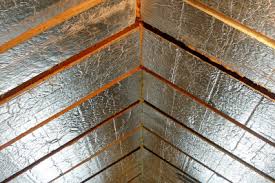Common Types of Insulation Used in Roof Repair Calgary
Roof insulation functions to keep temperature stable inside the house by keeping heat inside or outside the house. There are different types of insulation used in roof repair Calgary and some perform better than others. They work by using dead air spaces to slow down the flow and transmission of heat.
Insulation is essential in every roof assembly because it extends the life of the roof and enhances the performance of the roofing system. Selecting the right insulation is therefore vital because a wrong choice could be detrimental to your roof.
Different insulation types are available and utilized in roof repair Calgary, each with its own way of protecting the roof from temperature fluctuations.
These are some of the most common types of roof insulation:
Gypsum Board
The generic term applies to a type of panel products made up of water-resistant and non-combustible gypsum core. Gypsum board is more commonly called drywall, plasterboard and wallboard. To improve its roof-membrane adhesion, the board is treated with a non-asphalt proprietary coating on one side. It is commonly used as a thermal insulator on steel decks, cover board for foam-plastic insulations and vapor-retarder substrate.
Cellular Glass Insulation
This is made up of crashed glass mixed with a foaming agent. The materials are combined and reheated creating a uniform but connected cells or buns with insulating and flotation properties. The resulting composition is resistant to high heat, moisture and fire. Its widespread commercial use in roofing insulation stems from its exemplary cold storage applications.
Polyisocyanurate
A highly stable foam-plastic created from the combination of isocyanurate and polyol. It has the highest thermal insulating property among all conventional foam insulation available in the market today. The material is placed between organic or inorganic facers (glass-fiber mat and glass-fiber-reinforced aluminum foil).
Wood Fiber
An organic insulation based on cane, wood and vegetation fibers combined with binders and fillers. To enhance its resistance to moisture, some manufacturers coat the material with asphalt.
Perlite
Perlite is composed of inorganic and expanded silicaceous volcanic glass combined with fillers and binders. To minimize the absorption of adhesive to the insulation while applying roof membrane, the surface is coated with asphalt or proprietary material.
Polystyrene
A type of rigid foam insulation normally used on both residential and commercial structures. Its positive features include enhanced ability to insulate against extreme temperatures and noise. It is also waterproofed and durable. It comes in two types—expanded and extruded. The latter is the superior product for insulation because of additional qualities.
